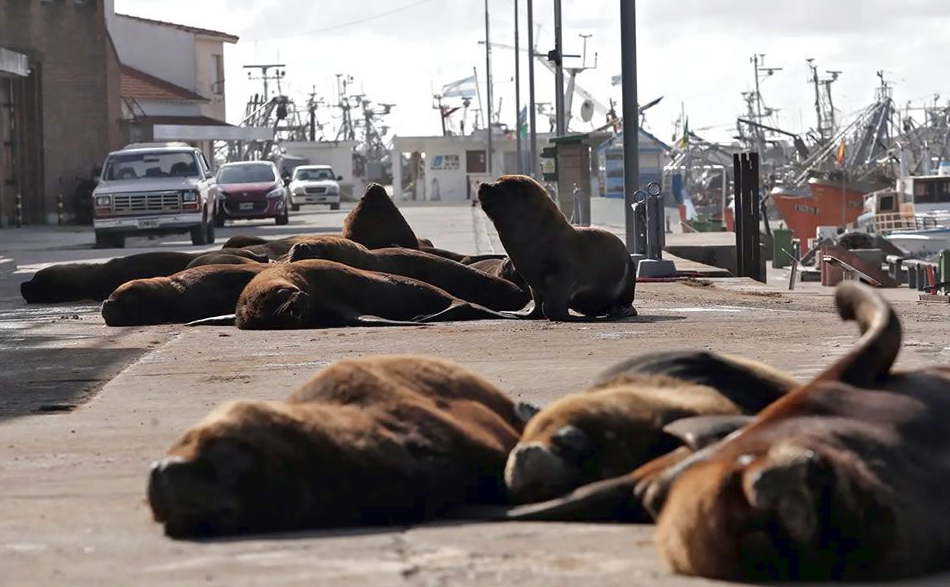Hours away from the two-year anniversary of the start of the pandemic, assessments of the legacy of COVID-19 are multiplying. Emulating the adage that “with every recession, the planet breathes”, amidst the confinement, signs of recovering ecosystems, purer water, and air quality, and a redefinition of human priorities towards affection, sociability, and away from status and consumption emerged. Those signs of ecological well-being, the fruit of government quarantines, placed the State and public policy at center stage as agents of change and above the voluntary constraints of individuals.
As in previous crises and in line with the global concerted efforts that propelled the Millennium Development Goals and the Sustainable Development Goals, the Kyoto Protocol, the COP climate conferences, and the new Paris Agreement, there was a redoubled commitment to ordering the world sustainably based on the anticipated and controlled planning of desirable results (sustainability by design).
However, the proposals for green shocks, eco-responsible policies labeled as build back better and climate-just transitions were left in the dust, giving way to the least desired alternative: the radical disorganization of our lives, the result of the economic and socio-psychological crisis that accompanied the confinements (sustainability by disaster). And if in countries with strong governments with more resources the central management of the State remained in the discourse, what can we say about Latin American societies?
Here, the upheavals in daily life resulting from COVID-19 brought about sudden and unexpected changes in the form of consumption and other social practices. The possible pro-sustainability inheritance is easier to recognize as a consequence of the disaster people have to cope with than of governmental design or planning.
The six sources of change
According to the study Sustainable consequences of COVID-19, carried out by the consultancy firm Market Analysis, in Brazil – a result that can probably be extrapolated to other Latin American societies – a series of sources of change can be distinguished that point to a smaller climate-environmental footprint. These changes involve traumatic transformations in lifestyles, which reveals the predominance of a sustainable disaster effect.
The first transformation was a phenomenal reduction in consumer spending due to the sharp deterioration of financial conditions and persistent unemployment, but also as a consequence of awakening towards frugality, expense planning, and the idea of saving. According to the study, 53% of Brazilians saw their spending worsen in 2021 compared to the first year of the pandemic, which had already been a dismal year. Something similar happened with the capacity to generate income, which worsened in 2021 by 49%. In contrast, the ability to avoid superfluous or unplanned purchases improved.
Secondly, there was a redefinition of entertainment and leisure increasingly disconnected from marketable experiences or conventional travel. Nearly half of Brazilians cut back on travel and vacation plans, especially international flights, and there was even little enthusiasm for overland getaways to areas close to home. At the same time, the consumption of alcohol and beverages so associated with leisure was reduced.
In addition, according to the respondents, there is a generalized sense of improvement in social and emotional relationships, which gain centrality and trigger a sense of individual well-being, despite the increase in loneliness among the interviewees. However, sociability and affective containment were extrapolated from the face-to-face space to the online environment.
Fourth, there is an accentuated perception of individual usefulness for the collective good through participation in voluntary or solidarity actions. Almost one-third of Brazilians were involved in philanthropic actions, volunteering, and unpaid cooperation with peers or strangers, more strongly among women, younger people, and the upper-middle classes. Thus, there was a revaluation of solidarity practices that broaden the notion of citizenship, beyond electoral formalisms.
There was also a boom in health improvement concerns and practices tending to prioritize immunity and healthier habits in general. According to the survey, the use of accessories and applications for self-care and personal control, such as fit bands, meditation and gym applications, heart rate and blood pressure monitoring, etc., has skyrocketed. The intention to practice sports or physical activities exclusively for individuals also shot up, while food choices improved. Twice as many people plan to eat less animal protein such as meats and dairy, and the number of those seeking more organic and natural foods doubled.
Finally, there was an immersion in heavily digitized environments and formats to perform the different functions and roles of daily life. The online/offline hybridization of everyday life, its obligations and choices is a fact. For example, 36% will do more home office and only 23% will reduce it. And in terms of studies and professional training, a majority adhere to distance learning formats.
Change as a result of unwanted constraints
The signs of progress towards sustainability that can be identified in Brazil two years after the pandemic began are, therefore, much more the result of unintended and undesired restrictions than the consequence of a design erected by the State in favor of a transition toward climate-environmental responsibility.
The resulting arrangement and its environmental and sustainability dividends are far from being the result of a plan because of forced adaptation to the disaster or disruption that has befallen our personal lives. Progress in the direction of a smaller environmental footprint does not derive from planned actions, but from economic recession, the sudden impoverishment of broad swathes of the population, restrictions on ways of working, education, socializing, and entertainment, and the forced lockdown of families unable to accommodate the multiplicity of functions of all their members.
To what extent will all this framework nurture lifestyles that are substantially and permanently less harmful to the environment? Will this new reality change at the first sign of economic improvement? Only time will tell.
Translated from Spanish by Janaína Ruviaro da Silva











